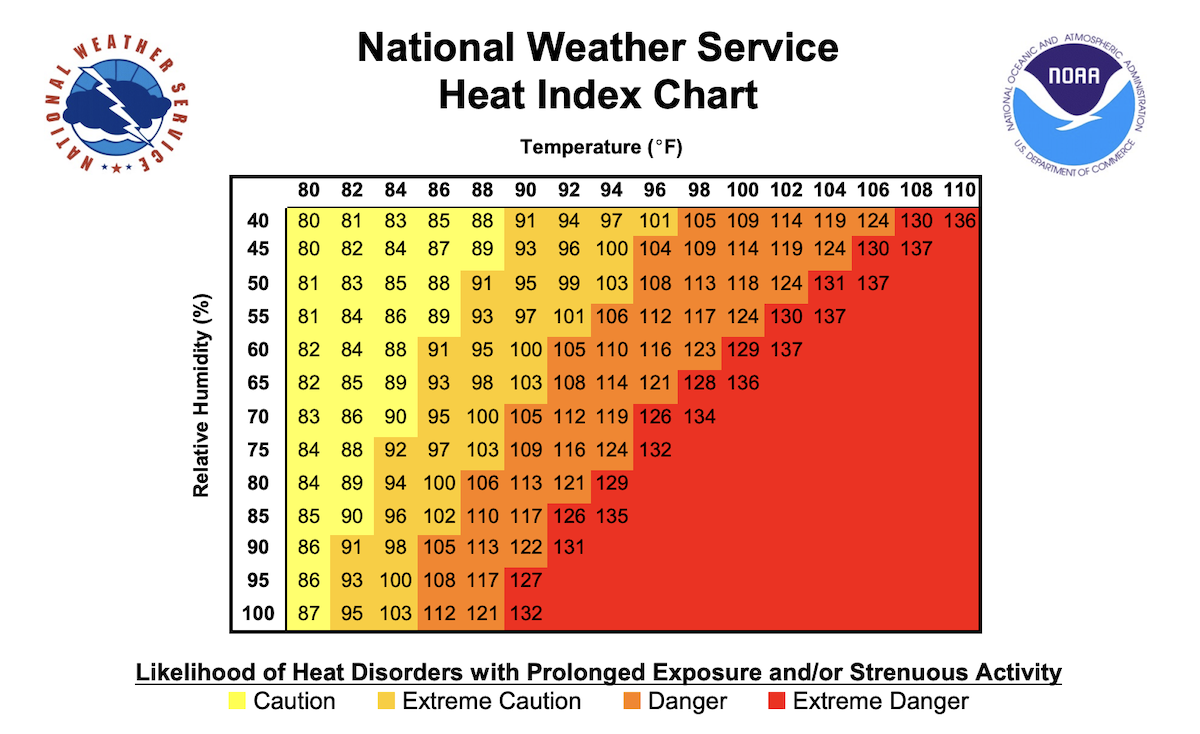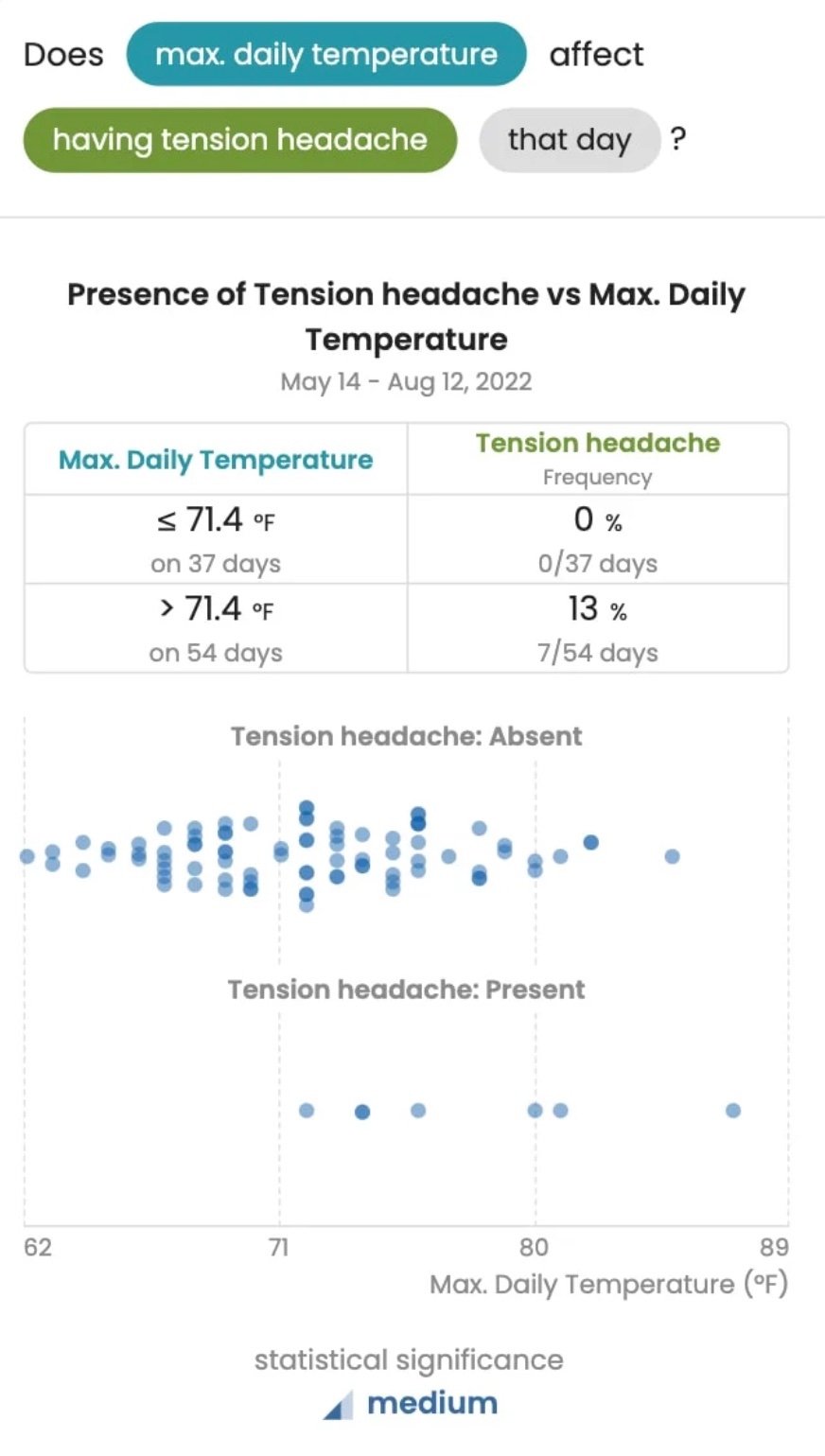
Have you ever worried about catching a cold in the winter? What about a heart attack?
The weather can affect your health in many ways most people don't know. Your body does a fantastic job of keeping itself at an optimal temperature most of the time. But when the weather turns more extreme, your body's game of balance gets a lot harder to play.
Hot Temperatures
Maybe to you, a hot day means a cool glass of lemonade and a trip to the community pool. But to your body, a hot day means scrambling to keep you cool.
On hot days or heat waves, your heart works overtime to avoid a rise in internal temperature (the temperature you read off a thermometer). This is because your cells don't fare well in high temperatures, so your body must find a way to shed excess heat.
One way is by pumping blood to your skin at a faster rate. Blood does a wonderful job absorbing heat, so if you are overheating, your heart begins pumping blood faster to the surface of your body (your skin). As a result, heat has an easier time leaving your body, which ultimately cools you down. However, because of this process, you can see an increase in your heart rate on hotter days. You may also notice that the increased blood and heat flow to your skin leaves it flushed and warm.
Additionally, hotter temperatures contribute to an increase in harmful air pollutants, so your lungs must work hard too.
Therefore, people with cardiovascular, cerebrovascular, diabetes-related, and respiratory conditions are advised to stay inside if the temperature gets too hot. According to NOAA's National Weather Service, you should show extreme caution when temperatures exceed 90 degrees Fahrenheit.

Cold Temperatures

On the other side of the spectrum, a winter storm doesn't just bring snow. It also brings an increased risk of strokes and heart attacks. This is because your blood vessels naturally constrict and dilate to regulate your body temperature. When it's cold, our blood vessels constrict (or narrow) so less blood can flow towards our skin, resulting in less heat lost to the environment. However, a narrower blood vessel can increase the risk of a blocked artery from plaque build-up or clotting. Both instances can result in a heart attack (if blood flow is cut off to the heart) or stroke (if blood flow is cut off to the brain).
The constriction of your veins causes another problem: high blood pressure. This concept is similar to holding your finger halfway over a hose spout. By partially covering the end of the hose, you are limiting the amount of water that can flow through. To balance this, pressure must increase, and you start seeing a much stronger stream of water and more strain on the hose lining. This is the same as with your blood vessels. As you decrease the space your blood can flow through, more pressure will build up and push against the artery walls. High blood pressure can increase your risk of heart attacks, strokes, aneurysms, and more.
Humid Weather

We all know what it feels like to step into a humid environment. If your frizzy hair isn't enough indication, your heavy breaths and sticky skin probably are. Unfortunately, high humidity does a great job of trapping pollutants, pathogens, and allergens in the air, meaning asthma and allergy symptoms will be more prevalent.
Additionally, high humidity makes it harder for sweat to evaporate (and cool us down), meaning those who already struggle in the heat are even more at risk of heart attacks, heatstroke, and heat exhaustion if it's humid out too.
Dry Weather

You likely have experienced dry and irritated skin in the wintertime. Well, to shine some light on the reasoning, this results when there is a higher moisture level inside our bodies than in the environment. When this happens, moisture is pulled from our skin, leaving it dry, itchy, and cracked.
But, your skin isn't the only thing affected by dry air. Your sinuses also tend to dry up from prolonged exposure to dry air, increasing your chances of a pesky nosebleed or congestion. In some cases, however, dry air can lead to more complicated respiratory problems, like bronchitis, asthma, and sinusitis. This is because if your sinuses are dried up, they are more susceptible to infections.
Ultraviolet (UV) Rays

The sun is both easy to love and easy to hate. After spending hours by the pool or on the beach, the lucky select few leave with golden and glowing skin… the rest of us are likely just burnt. Interestingly enough, what both tans and torments us is the sun's UV rays. Ultraviolet radiation is energy emitted by the sun. It has its benefits, like providing a natural source of vitamin D, but you should still be wary of these rays. UV radiation can kill cells or create cancerous ones by damaging cell DNA. This can lead to multiple health issues.
Sunburns are quite a common result of short-term UV exposure and can be painful, cause blistering, and overall make you feel pretty cruddy. But usually, sunburns aren't too serious. On the contrary, prolonged UV exposure can lead to the development of cancers like melanoma (a severe skin cancer) and several serious eye diseases.
Cloud Coverage

As we just learned, sunlight can be our best friend or our worst enemy. When it comes to mental health, however, sunlight is pretty key. For example, you may have noticed that sunlight can affect your mood. On sunnier days, maybe you feel a little extra happy or energized, while gloomy days might make you feel glum and irritable. Well, there's scientific evidence behind the benefits of natural light exposure. Some studies even go as far as to suggest natural light can increase your lifespan.
For some, a season without sunlight can be detrimental. Seasonal Affective Disorder (SAD) is a type of depression that causes serious mood changes depending on the season. In the winter and fall, when days are shorter and nights longer, depression symptoms increase. Yet, during the summer and spring months, when the days are longer, people with this condition see a decrease in their symptoms.
One study also found that cloud cover and precipitation can cause an increase in common depression. In Iran, scientists observed that those who lived in areas with more rain and cloud cover were more likely to suffer from common depression.
The reasoning for this phenomenon is not completely clear to scientists yet. Some research has suggested sunlight indirectly controls serotonin levels and that this regulation is lacking in the colder months. Other theories suggest vitamin D deficiencies or overproduction of melatonin play a role in seasonal depression. Whatever it may be, the world has yet to prove what makes sunlight so important for our mental health.
Air Quality

Air pollution is a common concern in our modern industrial world. With climate change, the effects of air pollution are becoming more and more real. So real that the World Health Organization states that when looking at strokes, lung cancer, and heart disease deaths, one-third are a result of air pollution. Air pollution consists of microscopic pollutants, like particulate matter (e.g. mineral dust), methane, and carbon monoxide, that can easily access our respiratory and circulatory systems, damaging vital organs.
To lower your exposure to air pollution, check the air quality daily and avoid spending unnecessary time outside on days with lower air quality. If you must be outside when air quality is poor, wear a mask. Most masks will only filter out large particles, but masks like the N95 can filter out small particles too.
Conclusion
There are theories upon theories of all the ways weather can affect your health, from barometric pressure and migraines to humidity and arthritis. Many of these phenomena are still being researched, but as we learn more about these correlations, we can better understand just how many factors play into a disease. From these correlations, we can learn new and better treatment plans and aid in the prevention of common diseases.
If you're curious about how the weather affects your own health, you can use Guava's weather correlation feature to compare your local weather to a multitude of metrics, symptoms, and more.






